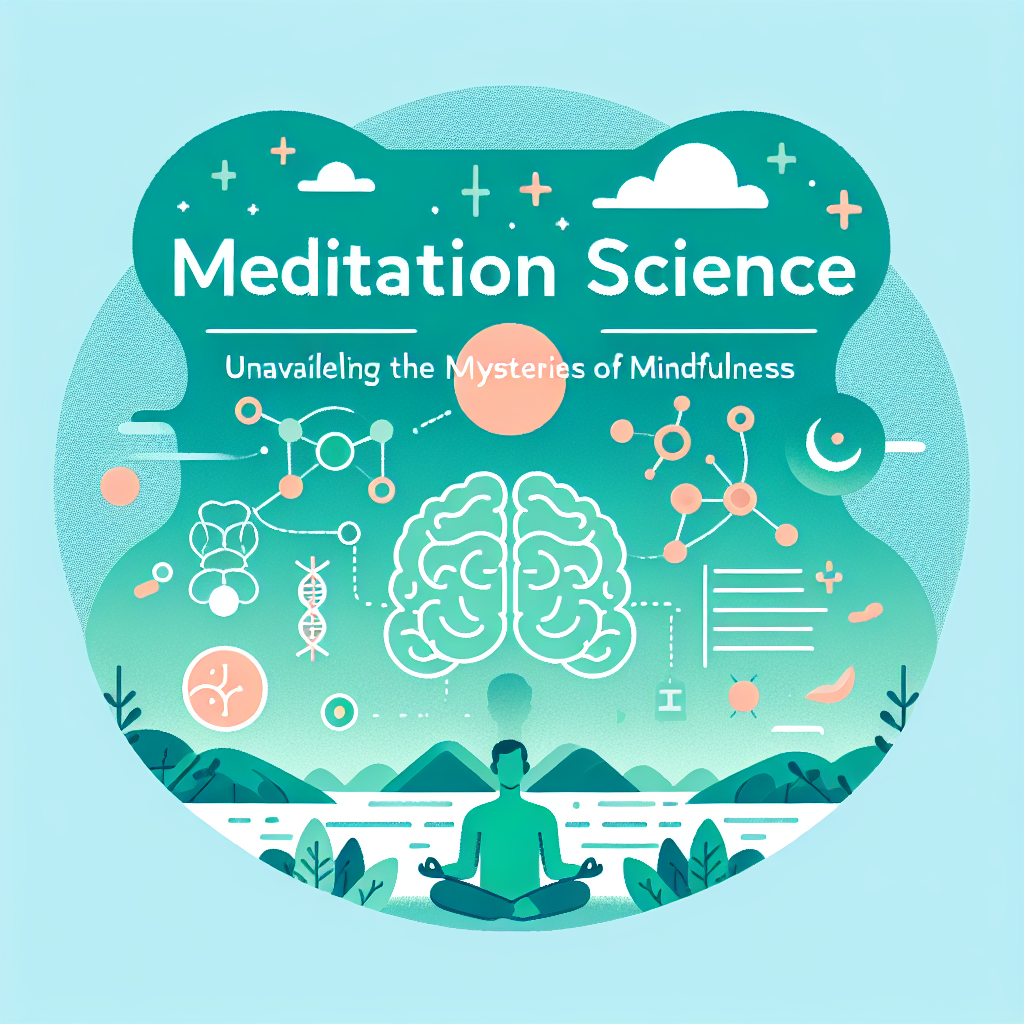Title: Exploring the Science Behind Meditation: How Mindfulness Benefits the Mind and Body
In today’s fast-paced world, stress and anxiety are common experiences for many individuals. However, there is a powerful practice that has been gaining recognition for its ability to promote calmness, focus, and overall well-being – meditation. While meditation is often associated with spirituality and ancient traditions, its benefits extend far beyond relaxation and tranquility.
In recent years, scientific research has delved deep into the effects of meditation on the body and mind, uncovering a wealth of evidence to support its positive impact on overall health. This emerging field of study, known as Meditation Science, seeks to understand the mechanisms behind how meditation practices such as mindfulness, loving-kindness, and transcendental meditation influence our brains and bodies.
One of the key findings of meditation research is its ability to change the structure and function of the brain. Multiple studies using neuroimaging techniques have shown that regular meditation practice can increase grey matter density in brain regions associated with memory, learning, and emotional regulation. Moreover, meditation has been linked to reduced activity in the brain’s default mode network, which is responsible for mind-wandering and self-referential thoughts, resulting in increased focus and attention.
Beyond the brain, meditation has been shown to have profound effects on physiological functions such as heart rate, blood pressure, and immune response. Studies have demonstrated that mindfulness meditation can lower levels of cortisol, the stress hormone, and reduce inflammation in the body. These physiological changes contribute to overall improvements in cardiovascular health, immune function, and stress resilience.
Furthermore, research in the field of Meditation Science has highlighted the psychological benefits of meditation, including reduced symptoms of anxiety and depression, improved emotional regulation, and increased feelings of compassion and empathy. By cultivating a present-moment awareness and acceptance of one’s thoughts and emotions, meditation helps individuals build resilience to stress and develop a greater sense of well-being.
In conclusion, the science behind meditation provides compelling evidence of its transformative effects on the mind and body. By integrating regular meditation practice into our daily routines, we can unlock a myriad of benefits that promote mental clarity, emotional balance, and physical health. Whether you are a seasoned meditator or a curious beginner, the research behind Meditation Science offers a compelling case for incorporating this ancient practice into your modern lifestyle for a happier and healthier future.








